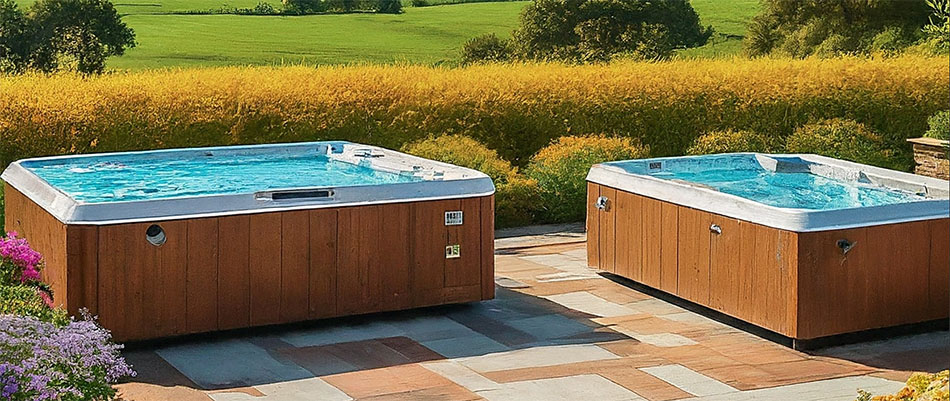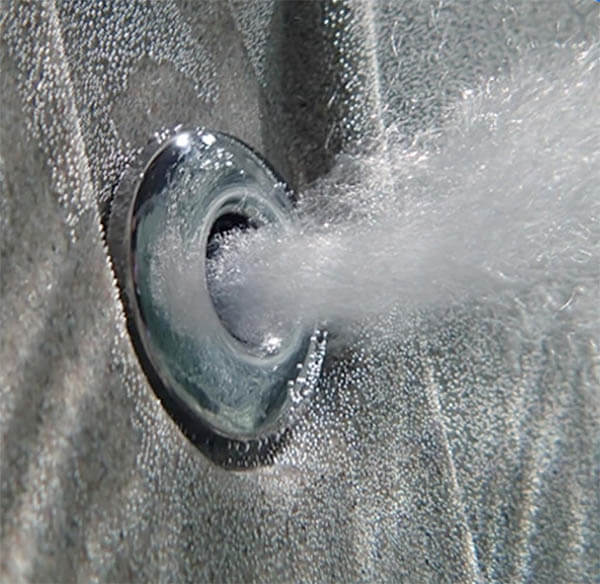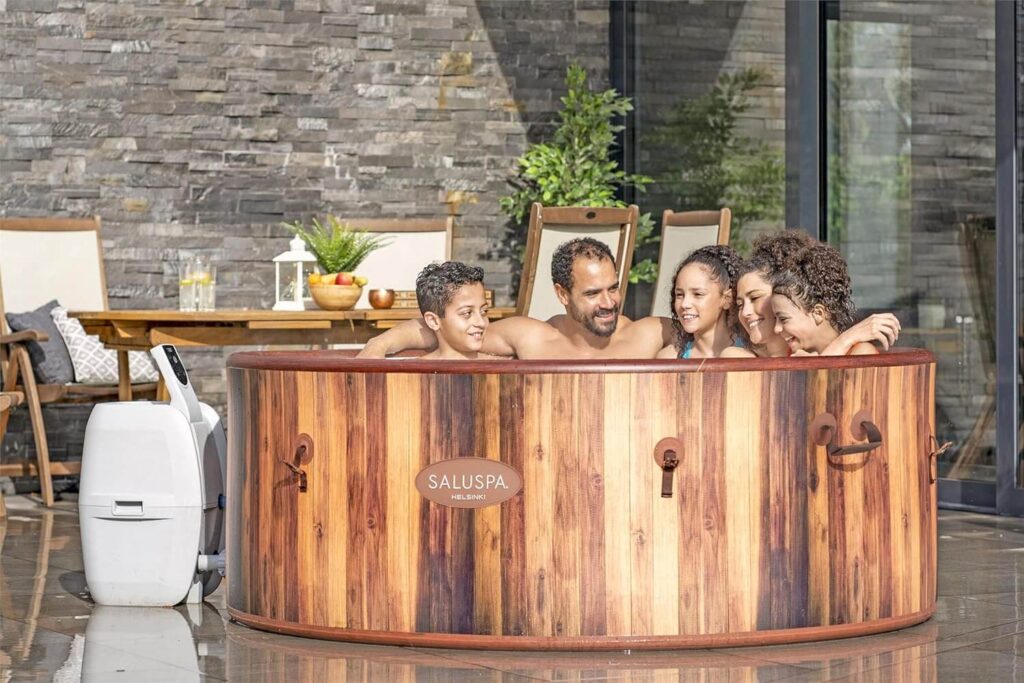
Are hot tubs worth it?
Just thinking about the hot tubs conjures images of bubbles, warm water, hydrotherapy, and pure relaxation.
But let’s hit the pause button for a second. As dreamy as it sounds, a hot tub is also a significant investment. You might be wondering, is the expense truly justified? Will you really use it enough to make it worthwhile? And what about all those rumblings you’ve heard concerning upkeep?
Don’t worry, you’re in the right place. This article dives into the nitty-gritty of hot tub ownership, dissecting both the highs and the lows, the bubbly benefits, and the not-so-fun stuff like maintenance and costs. Stick around, and you’ll walk away with a crystal-clear understanding of whether a hot tub is the right fit for your lifestyle—or just a fleeting fantasy.
If you’re trying to decide between a pool and a hot tub, check out this article at poolsntub.com.
Are Hot Tubs Worth It?
Contents
- 1 Are Hot Tubs Worth It?
- 2 Inflatable Hot Tub vs Regular Hot Tub
- 3 List of some of the best Hot Tubs
- 4 What Every Buyer Needs to Know – Things to Consider Before Buying
- 5 The Top Benefits of Owning a Hot Tub
- 6 Budget – Are Hot Tubs Truly Worth the Investment?
- 7 How Your Home’s Resale Value Is Affected by a Hot Tub?
- 8 Pros and Cons
- 9 Final Verdict: Weighing the Advantages of Hot Tub Ownership
Simple answer, Yes. But the value of a hot tub really depends on your lifestyle and priorities. If you’re seeking relaxation, hydrotherapy, or a social gathering spot, it can be a worthwhile investment.
Here’s a list of reasons why owning a hot tub might just be worth it for you:

- Relaxation: Hot tubs offer an unparalleled level of relaxation, helping to reduce stress and unwind after a long day.
- Pain Relief: The combination of warm water and massage jets can help alleviate muscle stiffness, joint pain, and discomfort associated with conditions like arthritis.
- Improved Sleep: Soaking in a hot tub before bedtime can ease the transition into deeper sleep by raising your body temperature and allowing it to cool down afterward.
- Family and Social Interaction: Hot tubs act as a social hub, providing a relaxing environment for family and friends to gather and spend quality time together.
- Hydrotherapy: For those with chronic conditions or injuries, hydrotherapy can be beneficial for rehabilitation and therapy, offering buoyancy that reduces strain on muscles and joints.
- Increased Home Value: A well-maintained hot tub can enhance the appeal of your home to potential buyers, potentially increasing its resale value.
- Year-Round Accessibility: Unlike pools, hot tubs can be used year-round in most climates, offering a warm refuge even during colder months.
- Entertainment: With features like LED lighting and built-in sound systems, hot tubs can provide a fun and entertaining environment right in your backyard.
- Personal Wellness: Regular use of a hot tub can contribute to your overall wellness routine by providing a space for meditation, reflection, and relaxation.
- Convenience: Having access to a hot tub at home means you can enjoy the benefits of soaking anytime without needing to travel or pay for facilities elsewhere.
To explore why you should buy a hot tub? and dive deeper into the benefits of owning one, click 25 Reasons – Why Buy a Hot Tub.
In this article, however, we will focus specifically on hard-sided hot tubs – their cost of ownership and benefits.
These models are known for their durability and robustness, offering a more permanent solution for those looking to add a hot tub to their home environment.
For those interested in the more portable and often less expensive option of inflatable hot tubs, you can explore their benefits and considerations by clicking here – Are Inflatable Hot Tubs Worth It?
Inflatable Hot Tub vs Regular Hot Tub

When exploring options for above-ground hot tubs, it’s important to differentiate between the two main types: inflatable hot tubs and hard-sided hot tubs. Each has its own set of features, benefits, and considerations. For those interested in learning about the differences in detail, a helpful resource is available – Inflatable Hot Tub vs Regular Hot Tub – which compares inflatable hot tubs versus regular hard-sided hot tubs.
List of some of the best Hot Tubs
Here’s a list to consider, based on durability, customer reviews, and features:
- Essential Hot Tubs 67-Jets 2021 Syracuse Hot Tub: A solid option with multiple jets for a thorough hydrotherapy experience.
- American Spas Hot Tub AM-630LS: Known for its versatile features and seating capacity, this one is great for socializing.
- Life Smart 4 Person Plug and Play: A convenient and user-friendly option with plug-and-play capabilities.
- Bueno Spa Jersey 6 – Person 46 – Jet Hot Tub: This one offers a large seating capacity and multiple jets for a comprehensive hot tub experience.
- Comfort Hot Tubs – 51 Jets: If you’re looking for something that seats multiple people comfortably and has a generous number of jets, this is a good bet.
- Oak Hill 3-Person 47-Jet Hot Tub with Lounge: A smaller but highly efficient option with a lounge seat for added comfort.
- Artesian Spas Island Series: These offer a luxury experience with a range of therapeutic features.
- Viking Spas: A budget-friendly option that doesn’t skimp on quality.
- Dimension One Spas: Known for their innovative designs and advanced water management systems.
- Hydropool Self-Cleaning Spas: As the name suggests, these hot tubs are designed to minimize maintenance.
Each of these models offers a unique set of features, so you’ll want to consider what’s most important to you—whether it’s the number of jets, energy efficiency, or seating capacity—when making your choice. Always check customer reviews and consider taking a ‘wet test’ at a dealer to make sure you’re making the right decision. Happy hot tub hunting!
What Every Buyer Needs to Know – Things to Consider Before Buying
Deciding whether a hot tub is worth the investment involves carefully weighing the costs against the benefits, and understanding what owning one really entails. Before you take the plunge, here are some crucial aspects to consider that will help you determine if a hot tub suits your lifestyle and budget.
Cost of Ownership
- Initial Purchase Price: Hot tubs vary widely in cost, depending on features, size, and brand. You could spend anywhere from a few thousand dollars for basic models to over $15,000 for high-end versions.
- Installation Costs: Installation may require additional expenditures such as constructing a durable foundation or patio and professional electrical work to ensure it’s up to code.
- Energy Consumption: Operating a hot tub requires significant energy, primarily for heating. This will likely increase your electricity bills, so consider the energy efficiency of the model you’re interested in.
- Water and Maintenance Supplies: Regular maintenance is necessary to keep the water clean and the system running efficiently. This includes purchasing water care chemicals and replacing filters.
- Regular Maintenance and Repairs: Beyond daily and weekly upkeep, hot tubs require periodic checks from professionals to ensure all mechanical components are in good working order. Over time, you may also face repair costs for wear and tear.
How Much Does it Cost to Run a Hot Tub?
Running a hot tub involves both fixed and variable costs, with monthly expenses typically ranging from $50 to $200, but potentially escalating to $400 or more, especially in colder months.
The main costs are linked to power consumption and maintenance. The power needs depend on various components such as heaters, pumps, air blowers, and control systems. Inflatable hot tubs generally consume less power due to fewer and less complex components, but regular hot tubs offer more features and durability which could lead to higher long-term costs.
Additionally, the operating cost can be influenced by factors like the hot tub’s insulation quality, the frequency of use, ambient temperature, and the efficiency of its components. Understanding these elements can help manage and potentially reduce the running costs of a hot tub.
For details please read: How Much Does it Cost to Run a Hot Tub?
Benefits of Owning a Hot Tub
- Health and Wellness: Many owners find the health benefits—such as improved sleep, muscle relaxation, and decreased symptoms of arthritis and other conditions—justify the expense.
- Stress Relief and Relaxation: A hot tub offers a personal retreat for mental and physical relaxation. The soothing effects of warm water and massage jets can help reduce everyday stress and anxiety.
- Enhancing Home Life and Socializing: Hot tubs can serve as an entertainment centerpiece during gatherings with family and friends, enhancing your home life.
- Year-Round Use: Unlike swimming pools, hot tubs can be enjoyed year-round in many climates, offering more value for your investment.
- Increased Home Value: Depending on the market and the buyers, a well-maintained hot tub can potentially increase your home’s resale value.
The Top Benefits of Owning a Hot Tub
Owning a hot tub is like having a personal retreat, a sanctuary that offers a variety of benefits, both for the body and the mind. From the healing powers of hydrotherapy to the social benefits of having a relaxed gathering spot, a hot tub can add significant value to your life. Let’s delve into some of these top benefits.
Hydrotherapy

First up, hydrotherapy. This isn’t just a fancy term; it’s a legitimate form of physical therapy that leverages the healing properties of warm water. The buoyancy helps relieve the pressure on your joints and muscles, while the heat boosts your circulation, all combined with the massaging action of the water jets.
For those suffering from arthritis, chronic pain, or even just the occasional soreness, hydrotherapy can provide much-needed relief. And the best part? Your hot tub makes this spa-like treatment available to you anytime, right in the comfort of your home.
Relaxation
Another undeniable perk is relaxation. In today’s hustle and bustle, finding time to unwind can be a challenge. With a hot tub, however, the invitation to relax is always just a few steps away.
Picture this: It’s been a long day, you’re tired and stressed, and then you dip into your hot tub. The warm water surrounds you, the tension in your muscles starts to melt away, and you feel a sense of calm wash over you. It’s as if your hot tub has magical powers that can turn even the most stressful day into a tranquil evening.
Helps Sleep
If you’re one of the many people who struggle with sleep, a hot tub might be the sleep aid you’ve been searching for.
The warm water helps to prepare your body for sleep by relaxing your muscles and lowering your body temperature once you get out, which is a signal to your brain that it’s time to wind down. Plus, the calming effects of the water can help ease any anxiety or stress that’s keeping you awake, making it easier to drift off into a deep, restorative sleep.
Social and Family Gathering

Last but not least, let’s talk about social benefits. A hot tub can quickly become the hub of social and family gatherings. Whether it’s a casual weekend hangout, a romantic evening for two, or quality family time, a hot tub creates a relaxed and enjoyable setting for any gathering.
The hot tub can break the ice at parties and bring family members together in a way that’s engaging and genuinely fun. It’s a social catalyst that enriches your life, offering an attractive setting for meaningful conversations and joyful moments.
So, when you weigh the benefits—hydrotherapy, relaxation, improved sleep, and social interaction—it’s clear that owning a hot tub is a decision that pays dividends in happiness and health.
Budget – Are Hot Tubs Truly Worth the Investment?
The budget question—a crucial one, indeed! When it comes to hot tubs, the investment goes beyond the initial purchase price.
Sure, you can snag a basic model for a few thousand bucks, but if you’re eyeing the high-end models with all the snazzy features, you could easily drop a small fortune. And let’s not forget the additional costs.
Installation can be pricey, especially if you need electrical work or a new patio.
Then there’s the bump in your utility bills and the ongoing maintenance, which includes chemicals, filters, and perhaps even professional servicing.
In essence, a hot tub isn’t just a one-time purchase; it’s a long-term investment that will have a recurring impact on your finances.
But before you get cold feet, let’s talk about the flip side. A hot tub can be a boon in ways that are hard to put a price tag on. Think about the daily relaxation, the potential health benefits like improved sleep and stress relief, and of course, the social perks—being the go-to house for gatherings isn’t too shabby, right?
Plus, a hot tub can add value to your property, making it a more attractive prospect to future buyers.
So while a hot tub is undeniably a luxury item with ongoing costs, its intangible benefits make it a worthwhile investment for many. The key is to weigh these benefits against the costs to determine if it’s a good fit for your lifestyle and budget.
How Hydrotherapy Makes Hot Tubs Worth It for Many?
Hydrotherapy, the use of water to treat various conditions, is one of the shining stars in the hot tub benefit galaxy. Imagine coming home after a grueling day and sinking into warm, jetted water. Ahh, bliss, right? Those jets aren’t just for show—they target muscle groups, promoting better blood circulation and helping to relieve muscle tension.
Many people find that regular hydrotherapy sessions can ease symptoms of arthritis, reduce stress, and even help with sleep issues.
For those who suffer from chronic pain or stress, a hot tub isn’t just a luxury; it’s a therapeutic tool that can significantly improve quality of life.
The Real Expenses of Having a Hot Tub
Don’t let the sticker price fool you; owning a hot tub comes with ongoing expenses that can sneak up on you if you’re not prepared. Besides the up-front costs, you’ve got regular maintenance, which includes not just cleaning the tub but also buying sanitizing chemicals.
If a part breaks or wears out, that’s an additional cost for repair or replacement. And let’s not forget the increased energy bill—keeping that water warm 24/7 doesn’t come cheap. So while the hot tub itself is a one-time expense, maintaining it is a long-term financial commitment.
How Electrical Needs Play a Role in the True Cost of a Hot Tub
Ah, the nuts and bolts—or should I say, wires and circuits? Most hot tubs require a dedicated electrical circuit, which might mean hiring an electrician to set up the proper electrical supply. Some of the high-end models even require a 220-volt outlet, which most homes don’t come equipped with.
Even if you’re handy, this isn’t really a DIY project; you’ll need a certified electrician to ensure everything’s up to code, adding to your initial costs. And of course, the more powerful your hot tub, the more it will cost to run, impacting your electricity bill.
Owning a hot tub is a multi-faceted decision that involves both financial and lifestyle considerations. But for many, the pros outweigh the cons, making a hot tub a worthy investment.
For details please read: How Much Does it Cost to Run a Hot Tub?
How Your Home’s Resale Value Is Affected by a Hot Tub?
The impact of a hot tub on your home’s resale value—now that’s a hot topic!
Generally speaking, a hot tub can add a dash of luxury and desirability to your property, especially if it’s well-maintained and situated in a well-designed outdoor living space. Think about it: who wouldn’t be enticed by the idea of a ready-to-use relaxation oasis right in their backyard?
If you’ve got a top-notch hot tub that’s been kept in tip-top shape, it can actually serve as a selling point that sets your home apart from others on the market. But keep in mind, this added value is often more about allure and less about actual dollars and cents added to your property value.
However, it’s not all sunshine and rainbows. The flip side is that not every prospective homebuyer will see a hot tub as an asset.
Some might see it as a maintenance burden or an unnecessary extravagance, and families with small children might have safety concerns.
In some cases, you might even find that a buyer will request the hot tub be removed as a condition of the sale.
So while having a hot tub can make your property more appealing to a subset of buyers and potentially speed up a sale, it’s not guaranteed to increase your home’s resale value by a significant amount.
As with most things, the impact varies depending on a multitude of factors, including the hot tub’s condition, the preferences of potential buyers, and current market trends.
Pros and Cons
Pros:
- Relaxation: There’s nothing quite like slipping into warm, bubbling water after a long day. The stress just melts away.
- Hydrotherapy: Sore muscles? Achy back? A hot tub can offer therapeutic benefits, relieving muscle tension and improving circulation.
- Enhanced Sleep: A warm soak before bedtime can prepare your body for a restful night’s sleep.
- Family and Social Time: A hot tub can be a social hub, a place where family and friends can gather, talk, and relax together.
- Adds Value to Property: A well-maintained hot tub can add a splash of luxury to your home, potentially increasing its resale value.
- Year-Round Use: Unlike a pool, you can use a hot tub year-round, whether it’s a warm summer night or a chilly winter evening.
Cons:
- Initial Cost: Hot tubs aren’t cheap. You’re looking at a significant upfront investment, including the tub itself and installation costs.
- Maintenance: Keeping a hot tub clean and running smoothly requires regular upkeep, from balancing water chemistry to cleaning filters.
- Energy Bills: Your electricity costs will rise. Heated water and jets don’t power themselves!
- Space: A hot tub requires a good amount of space, and depending on your yard or home layout, it could be intrusive.
- Safety Concerns: Without proper precautions, hot tubs can be slippery and potentially hazardous, especially for kids.
- Limited Exercise Utility: Unlike a pool, a hot tub doesn’t offer much in the way of exercise, unless you get one specifically designed for that.
Final Verdict: Weighing the Advantages of Hot Tub Ownership
When considering whether a hot tub is a worthwhile investment, it’s crucial to weigh the undeniable perks against the responsibilities and costs. On the benefits side, hot tubs offer exceptional relaxation, potential health improvements such as better circulation and pain relief, and enhanced sleep quality. They also act as a social hub, enhancing family and friend gatherings and potentially boosting your home’s market appeal.
However, the costs of ownership—initial purchase, installation, ongoing energy consumption, and regular maintenance—can add up. These require not just a financial commitment but also time for upkeep. Moreover, the impact on your electricity bill and the need for periodic repairs are practical considerations that need ongoing attention.
Ultimately, if the lifestyle enhancements align with your personal and family needs, and you’re prepared for the maintenance and costs, owning a hot tub can indeed be a rewarding investment. It’s about balancing the immediate and long-term benefits with the cost and effort of upkeep, ensuring it matches your lifestyle preferences and budget.

